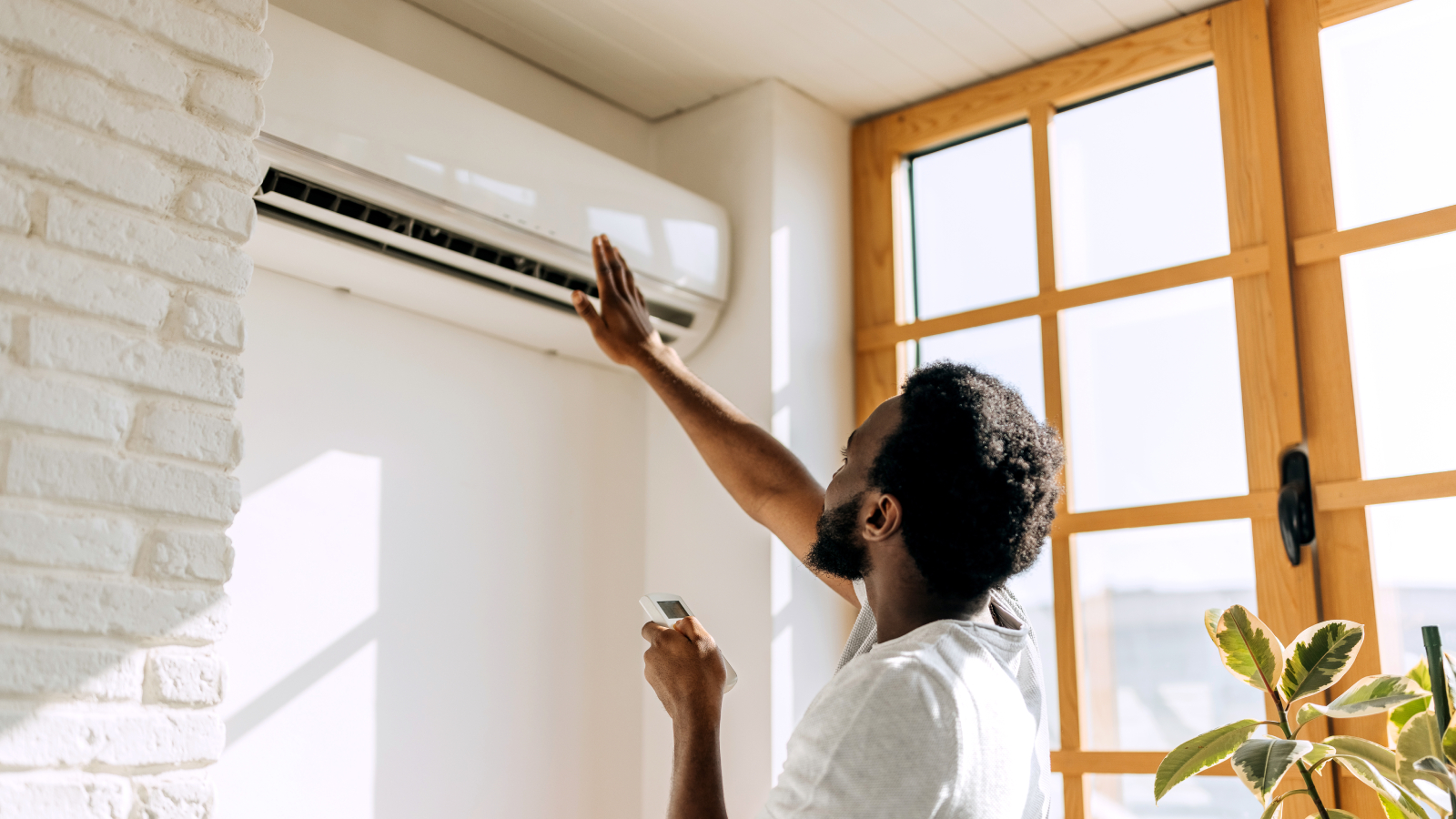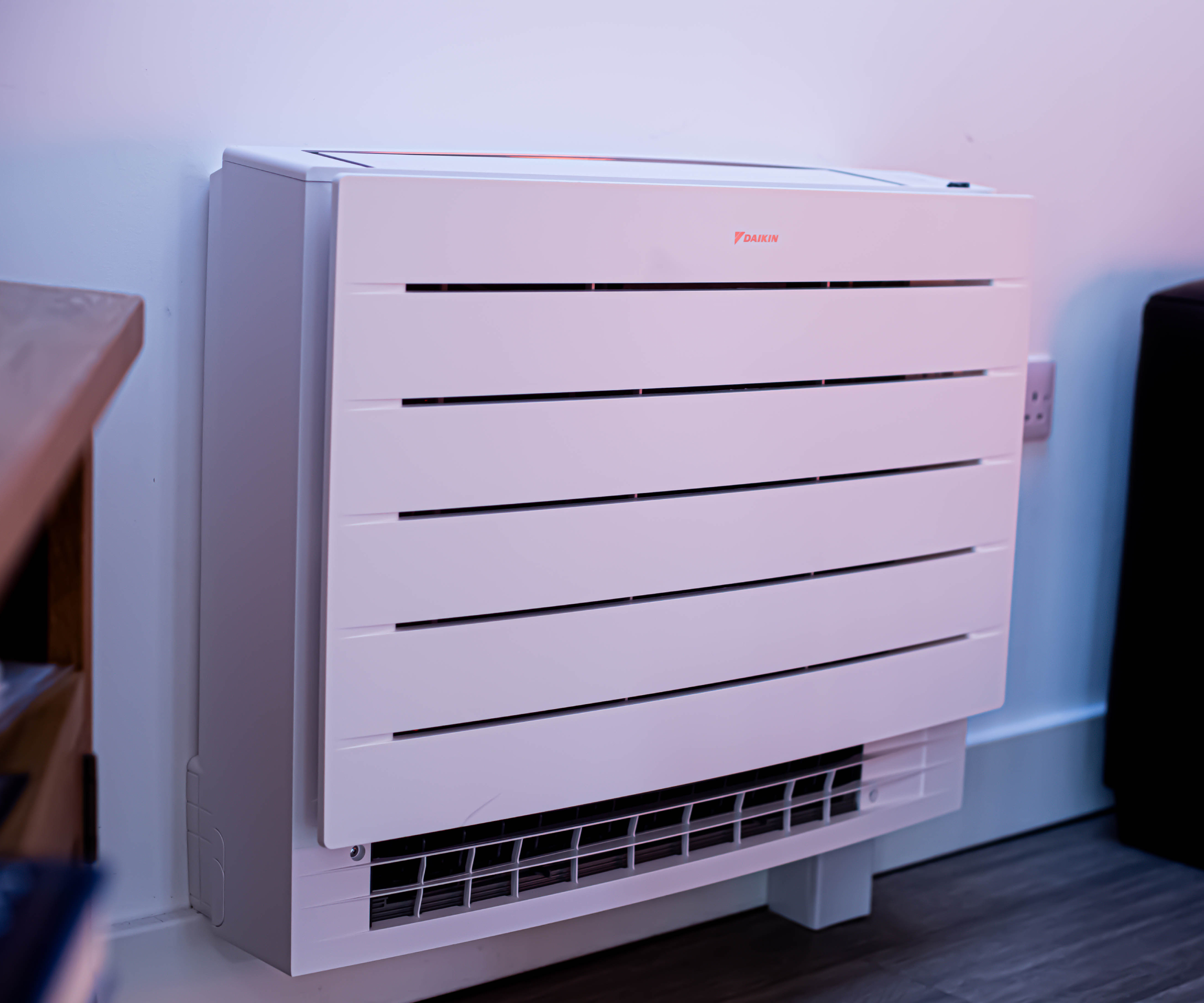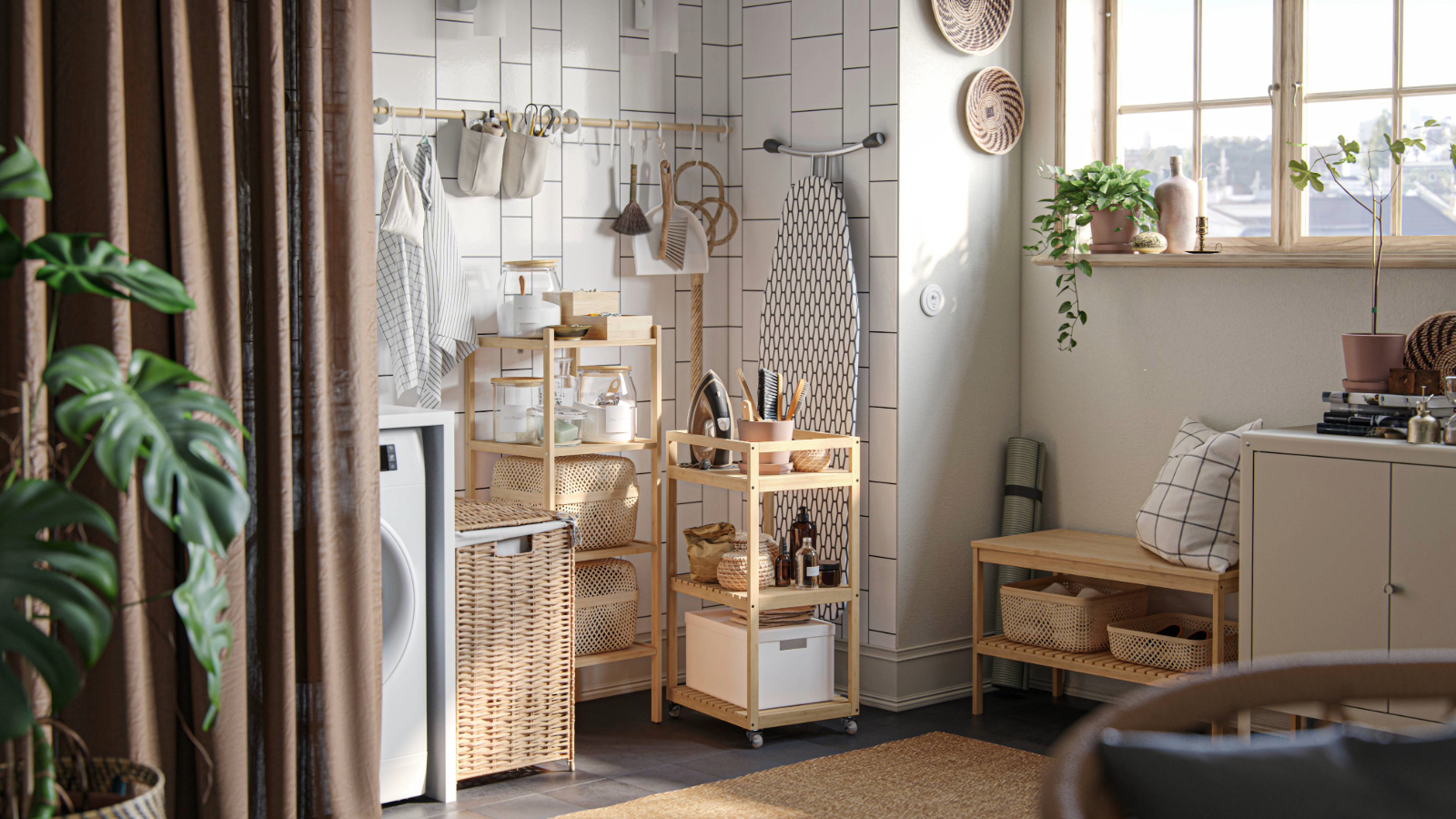Experts reveal why HVAC might be the best solution to cooling your home
Think fans are your only option? Think again. Experts say HVAC cooling could be the smarter way to keep your home feeling fresh in a heatwave

Bring your dream home to life with expert advice, how to guides and design inspiration. Sign up for our newsletter and get two free tickets to a Homebuilding & Renovating Show near you.
You are now subscribed
Your newsletter sign-up was successful
Let’s face it, UK summers are warmer than ever before and finding a reliable way to keep cool at home has never felt more pressing. Fans and portable air conditioners offer some temporary relief, but they often fall short when it comes to keeping the house feeling fresh and comfortable, especially when a heatwave is on the cards.
If you’ve found yourself looking for a whole-home solution, experts say an HVAC system could be worth considering. These systems work by actively removing heat and maintaining an even temperature throughout the house, so there's no need to lug fans from room to room or only focus on cooling one space while the rest of your home bakes.
While HVAC setups were once thought of as something reserved for large or modern family homes, newer systems are far more adaptable and energy efficient than you might realise.
So, if you’re weighing up ways to future proof your home, here’s what you need to know about how HVAC cooling works and why it might just be the upgrade your space deserves.
What do we mean by HVAC cooling?
HVAC stands for Heating, Ventilation and Air Conditioning, and in the context of cooling, it refers to systems designed to regulate your home’s temperature, humidity and air quality. This could mean a central air conditioning system, a split-unit setup with indoor and outdoor components, or a ducted system designed to serve the entire house.
Unlike portable fans, which only circulate air, or portable air conditioners, which are limited to a single space, HVAC cooling works by actively removing heat from the indoor air and delivering a more consistent, controllable cooling experience across multiple rooms.
Modern HVAC systems use advanced heat pump technology to transfer heat. “They can move cold air from outside into the home or move warm air from inside to out,” explains Sachin Vibhute, HVAC and heat pump technical consultant at LG Electronics. “By transferring heat, HVAC systems offer a long-lasting solution to cooling the home when compared with fans and portable units, which only offer temporary, limited relief.”
Bring your dream home to life with expert advice, how to guides and design inspiration. Sign up for our newsletter and get two free tickets to a Homebuilding & Renovating Show near you.

Sachin Vibhute is an HVAC and Heat Pump Technical Consultant at LG Electronics, specialising in energy-efficient climate solutions and product training across residential and commercial heating and cooling systems.
Reasons To Consider HVAC Cooling For Your Home
HVAC can effectively heat or cool your home according to your needs.
There are different types of HVAC systems to suit different homes. For example, if you're renovating or live in an older property where installing ducts might be tricky, a split system could be ideal.
Many modern systems also offer zoned control, which means you can cool just the rooms you’re using and skip the ones you’re not. “Zoning technology ensures that only the spaces you are actively using are cooled, limiting energy waste in unoccupied rooms,” says James Allen, account manager at Airzone. “Some systems even use sensors to learn your habits and adjust cooling based on when rooms are typically in use.”
An HVAC setup can also work alongside your smart home tech. “Automated blinds can be programmed to close during the hottest parts of the day, helping to block out the sun and reduce the strain on the air conditioning,” explains James Allen. In fact, Airzone’s research suggests this type of setup can help cut household energy use by up to 50%.
Because the main components (like the compressor) are usually installed outside, HVAC systems tend to be much quieter indoors than portable fans. Add in features like air filtration, smart scheduling, and the ability to personalise each room’s temperature, and it’s easy to see why HVAC cooling is becoming such a popular choice.

James Allen is Sales Account Manager at Airzone UK, where he helps homeowners create smarter, more comfortable living spaces through intuitive climate control and energy-efficient HVAC solutions.
Is HVAC cooling right for every home?

While HVAC systems offer plenty of benefits, they’re not the ideal solution for everyone, especially when you consider the unique quirks of UK homes (from solid wall construction to tight conservation rules). Whether or not HVAC is the right choice for your home will depend on a few key factors: property type, insulation levels, budget, and how often you actually need to cool your home.
“HVAC doesn't work the same way for everyone,” explains Alan Houghton, MD at Next Level Underfloor Heating & Screed Solutions. “A well-insulated home in a mild area where cooling needs aren't common or someone on a tight budget might not like it. The costs of installing an HVAC system can be high. In some situations, it may be enough to just improve the insulation and airflow to completely cool the house.”
Houghton also points out that older or historic properties may pose more of a challenge. If you live in a listed building or somewhere with strict planning rules, installing ductwork or outdoor units may be restricted. That said, new technologies like split systems and ductless configurations are making retrofitting HVAC much more manageable.
HVAC cooling Costs and Long-Term Value
Investing in an HVAC system is a big decision and naturally, one of the biggest considerations for homeowners is the costs involved. While the upfront expense of these systems can be significant, it's worth weighing this against the long-term benefits, including improved energy efficiency, better indoor air quality, and the potential to increase your home's value.
You will need to bear in mind the costs for everything from the equipment and installation of the system to any changes you might need to make to your home to fit it in the first place.
The most cost-effective option for retrofits is usually a split system, which doesn’t require ductwork and is relatively simple to install. Ducted systems, by contrast, tend to be more expensive and complex, and are typically best suited to new builds or large-scale home renovations.
Maintenance costs also need to be factored in. A well-maintained HVAC system can last 10–15 years or more, but regular servicing is essential. This includes filter changes, cleaning, and inspections, along with keeping the external condenser clear of debris. An annual service by a qualified engineer is recommended to keep everything running smoothly.
As for running costs, there’s good news on that front. Modern systems, particularly those using inverter technology, are far more energy-efficient than older models or standalone units. By adjusting power output based on the temperature needed, they avoid the stop-start inefficiencies of traditional systems. And don’t forget – an efficient HVAC setup can boost your Energy Performance Certificate (EPC) rating, which could add appeal (and potentially value) if you plan to sell in future.
Bonus tip: Setting your HVAC system to a steady 24–25°C is more energy-efficient than switching it on and off or blasting cold air. “This not only extends the lifespan of your HVAC system,” says James Allen, “but also keeps running costs down.”
FAQs
What are the alternatives to HVAC cooling?
While HVAC systems offer whole-home comfort and long-term benefits, they’re not the only way to prevent overheating. Depending on your space, budget or lifestyle, other solutions might make more sense. For example, if you’re renovating or extending, there are other passive cooling strategies that can be built into your designs. These include:
- Shading (like awnings or external blinds)
- Cross-ventilation through carefully placed windows
- Insulation upgrades to prevent heat gain
- High-performance glazing
- Green roofs or reflective roofing material
Can HVAC systems help reduce energy bills?
Yes, especially when paired with a well-insulated, air-sealed home. According to LG’s Sachin Vibhute, HVAC systems with heat pump technology use ambient air for up to 75% of their cooling output. That means only 25% of the energy needs to come from electricity, making them significantly more efficient than traditional units. Add in features like smart controls, occupancy sensors and zoned cooling, and you’ve got a setup that only uses energy when and where it’s needed.
Is HVAC cooling noisy?
Not compared to portable units or window air conditioners. In a typical split system, the noisy compressor lives outside the house, which means indoor units can run quietly, ideal for bedrooms or open-plan spaces.
What should I consider before choosing an HVAC system?
Start with a professional home survey or energy audit. This will identify areas of heat gain and help you make targeted improvements to insulation and airtightness, which could reduce your cooling needs or improve HVAC performance. Other things to factor in include:
- Property size and layout
- Your budget (both upfront and ongoing)
- Whether you want cooling in one room or across the whole house
- Planning or aesthetic considerations (especially for period or listed homes)
Homeowners thinking about installing an HVAC system should look beyond just the tech and consider how well-prepared their home is to support it. Proper insulation, airtightness, and draught-proofing are just as important as the system itself.
EDITOR’S NOTE: An earlier version of this article included a quote from a purported expert whose credentials we have not been able to verify. The quote has been removed. We regret this lapse in our verification process and have updated our internal protocols to reduce the risk of recurrence.

Gabriella is an interiors journalist and has a wealth of experience creating interiors and renovation content. She was Homebuilding & Renovating's former Assistant Editor as well as the former Head of Solved at sister brand Homes & Gardens, where she wrote and edited content addressing key renovation, DIY and interior questions.
She’s spent the past decade crafting copy for interiors publications, award-winning architects, and leading UK homeware brands. She also served as the Content Manager for the ethical homeware brand Nkuku.
Gabriella is a DIY enthusiast and a lover of all things interior design. She has a particular passion for historic buildings and listed properties, and she is currently in the process of renovating a Grade II-listed Victorian coach house in the West Country.
